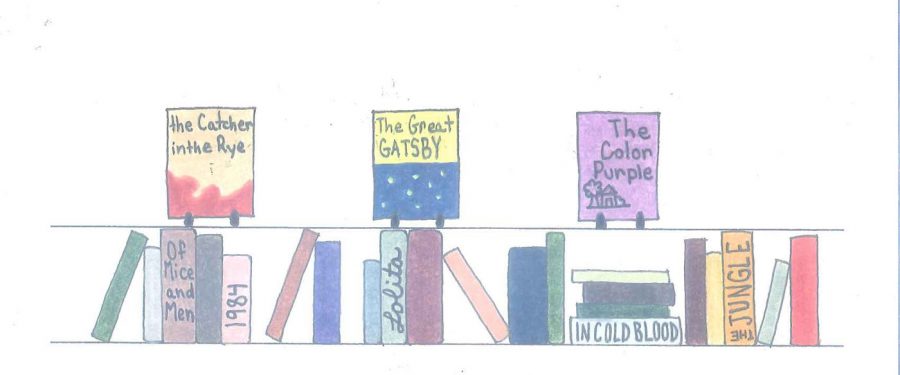Banned or Beneficial?
September 16, 2016
Each year, a nationally-recognized week celebrates banned books. The week, commonly known as Banned Books Week or BBW, honors these books’ contributions to the “literary canon,” along with the freedom to express ideas and the access of information.
This is a week when the American Library Association celebrates awareness that they have rights in regards to censorship. However, some of the reasons that books are banned or challenged to be banned are questionable.
Naturally, there are reasons that people can think of on the spot that explains why books are banned. Some of the normal content that gets books banned is profanity, racial issues, religious affiliations, violence or negativity, presence of witchcraft, political bias or age appropriateness.
“There’s nothing special that takes away a banned book from being just a book,” head of the SHS library Tara Foor said, “Other than somebody objected to it. It’s just a book.”
According to Foor, people can get something from any book. That “something” could be that it is educational, informational or entertaining, but the only difference is that banned books were just banned in a library in the US at one point. Being the head of the library, Foor has the authority to choose what books are and are not in the library at SHS. Many of the banned books in American libraries are available in the SHS library because Foor considers them good resources for students.
“We don’t want our kids to think freely or our kids to think for themselves,” Foor said sarcastically, “but that’s what education is all about. We want you guys to think for yourselves.”
For example, the book series “Harry Potter” was once one of the most banned book series in American libraries because parents didn’t want the influence of magic on on their children. Parents claimed that they were afraid that these books would persuade students to pursue witchcraft. However, you can find the “Harry Potter” series on the shelves at SHS.
There are a lot of books out in the world that are banned in schools because students aren’t supposed to be persuaded to think a certain way. Parents want the rights to control what their children are exposed to, and according to Foor, censorship is a huge idea that isn’t fully understood. Censorship is the examination of books, movies, etc., and then abolishing objectionable content. BBW is a time when libraries across the nation can show people awareness of all the different ideas and a time where the freedom of those ideas have been challenged.
According to Foor, the most controversial books are the ones that relate to any mainstream topics, such as religion, philosophy, content that strays from the norm or anything that deals with something that may make a reader uncomfortable.
“If a student can be educated by reading it,” Foor said. “And can be entertained by reading it or it can be used in the classroom in some way, shape or form, it’s good material for our school.”
Books are information materials for anyone to access. Banning a book just limits the materials for students to use. At the SHS library, no books are banned.
“I should have the option,” junior Nathalia Garcia said. “My type of appropriate could be different from someone else’s appropriate.”
While Garcia hasn’t wanted to check out a book that was banned, she thinks that students generally are mature enough to have the freedom to choose the material that they read both inside and outside of school. This being said, she believes that students should have the right to choose what is “banned” to them and not banned to them.



